Our Mission
Our mission is to expand the bee population while improving the health of honeybees and other pollinators here in San Francisco and around the world. Our locally certified beekeepers install and manage hives on your property and use the data we collect to drive the science of pollinator health forward with scientific partners that include Urban Beekeeping Lab, NASA, MIT and National Geographic.


Our Reach in the San Francisco Bay Area
21 residential backyard hives
64+ hives
43 commerical property hives
Hive Programs for Commercial Properties
We offer innovative solutions that can help bring your corporate sustainability programs to life. These include the highest standards on beekeeping, as well as developed workshops and programs that will engage your community—employees, guests, tenants, community leaders, and the public—in your sustainability work.
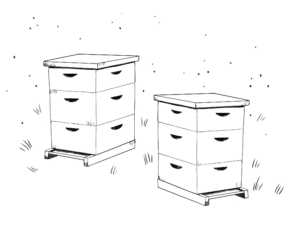
Commercial Services
Beekeeping for Your Residential Backyard
If you’d like to save bees, build a healthier environment, pollinate your garden, and have your own honey harvest, then our residential service is perfect for you! We offer turnkey beekeeping, honey harvesting, and DNA analysis designed for homeowners in a wide range of environments. Regardless of the size of your property—whether you garden on a balcony, or have acres of land, we can set up and tend a hive—or several hives—for you.
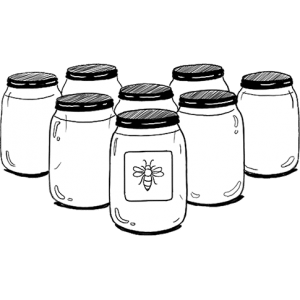
Residential Services
Beekeeping Education
![]()
We offer a number of for-fee educational programs that have proven popular with commercial clients, schools, gardening clubs and organizations promoting sustainability.
Pre-recorded and live hive tours
Experience a guided tour as one of our bee experts takes you on a walk-through of your hive visits and inspections. Get a glimpse of the busy life of bees and learn more on how to keep tenants engaged with their local environment. Live tours are available for up to 20 participants.
Meet an expert beekeeper
Participate in a beekeeper-led webinar and Q&A session. This virtual event is a great opportunity to learn about your bees through the lens of a beekeeper. We’ll discuss the data collected from your beehives, why bees matter, and what it's like to take care of your bees.
Virtual keynotes
Gain insight into the world of bees with our Chief Science Officer and Founder, Dr. Noah Wilson-Rich. Noah's knowledge of honeybee health and his passion for bee research will leave your audience spellbound, and with a wealth of new insight about our natural world. Our virtual keynote package includes signed copies of The Bee: A Natural History.
How Professional Beekeeping Works
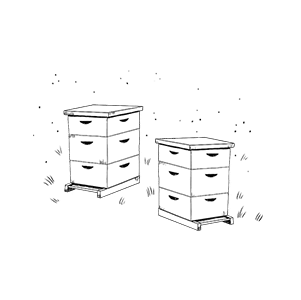
Installation
We help you choose an ideal location to establish one or more beehives at your home or workplace.
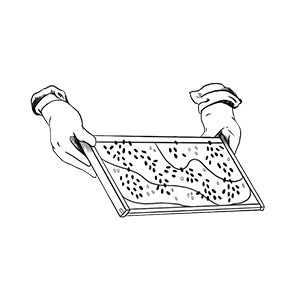
Maintenance
Our impassioned and experienced beekeepers service your beehives once a month, providing high-quality care and detailed reports.
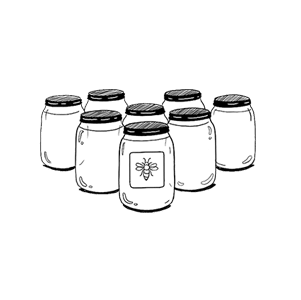
Harvesting
You keep 100% of the raw honey produced. We’ll handle the rest— small batch extraction and bottling with personalized labels.
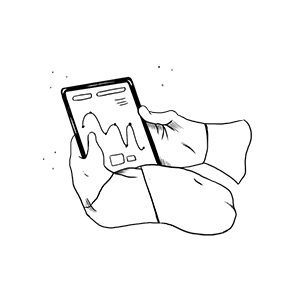
Research
At every visit, we collect data and share it with our research partners to advance the science of beekeeping and improve the health of pollinators worldwide.
Safe
Our honeybees, Apis mellifera ligustica, are the most docile species of honeybees, making our hives extremely safe and the instance of stings very unlikely.
Insured
We have a full insurance policy and can provide a Certificate of Insurance (COI) easily.
Experienced
Our beekeepers are trained to work safely in densely populated urban areas. This includes on balconies, rooftops, and skyscrapers.

Beekeeping Laws in California
A California law enacted in 2019 requires beekeepers to register their hives with the Department of Agriculture. Annual registration is $10 per beekeeper. Beekeeping laws can vary by municipality, with some, like San Francisco, very open to beekeeping, while others require permission from neighbors, or ban the keeping of bees within specified distances of residences. Before keeping bees of your own, check with your local department of health. If you contract with Best Bees, you can be sure that we will follow all local regulations regarding permission and hive placement.
All of our beekeepers are licensed to use pesticides and are certified for safe roof-top work.
Services Provided in the San Francisco Bay Area
We service hives in the following counties in the Bay Area:
Marin
Contra Costa
Alameda
Santa Clara
San Francisco
Sonoma*
Napa*
Solano*
*Service area limited. Please call to confirm coverage of your specific county.
What's Included
- Site Evaluation
- Hand-crafted, all-natural beehive equipment installed onsite
- A colony of docile honey bees (Apis mellifera ligustica)
- Monthly maintenance visits and follow up reports
- Advanced scheduling so you can alert your team
- Full-time customer service team available by phone or email
- Raw honey, harvested and bottled just for you
- Replacement colonies provided at no cost
- Fully insured professional service
About Local Honey
Honey production varies from colony to colony, depending on the strength of the Queen, the health of the hive and the availability of nourishment. New colonies tend to produce less honey than established ones. When there is a surplus of honey, we will harvest and jar it for you.
The composition and flavor of honey varies from hive to hive as well, depending on the floral species available to pollinate. This means that honey from your hive will have a unique profile. Tasting it, you are tasting the composite of all the flowers your bees have visited!
In our studies of honey DNA, we’ve found that honey from urban hives includes a much wider range of species—as much as eight times more than honey from rural and suburban hives!
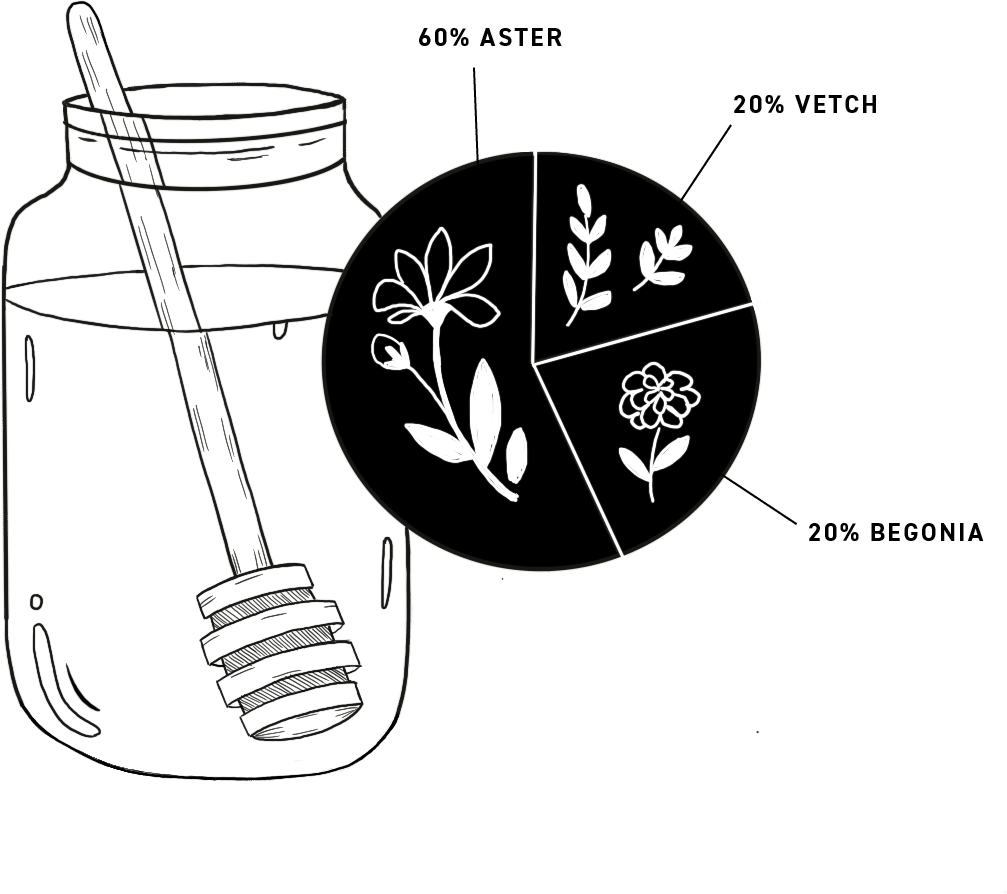
HoneyDNA
We pioneered the process of identifying the exact percentage of various pollen species found in honey through advanced genomic sequencing. Understanding where bees foraged reveals which plants best feed pollinators in the local environment.
Already Have a Hive?
At Best Bees, we’re proud to be a part of the local beekeeping community in every area in which we work.
If you are not already a member of the San Francisco Beekeepers Association, we strongly encourage you to join. You can learn more at https://www.sfbee.org/.
Join our Citizen Scientist movement! Here are some ways you can participate:
- Plant more pollinator habitats on your property
- Use bee-safe pesticide alternatives
- Get involved in local and national lobbying
- Submit your honey for HoneyDNA
You can also post your data to bee Citizen Science programs like iNaturalist, The Great Sunflower Project, and Beecology Project.
We gladly share the learning from our research and our best practices with everyone. To learn more about the findings of our research work, visit https://bestbees.com/white-paper-resources/.
To watch one of the TED Talks by our Founder and Chief Science Officer Dr. Noah Wilson-Rich, visit our Research page https://bestbees.com/research/ .
To stay abreast of our latest thinking, read our blogs at https://bestbees.com/blog/
Unique Challenges and Opportunities to Beekeeping in San Francisco
While the Bay Area is blessed with mild weather year-round, and so has much higher than average colony survival rates than most U.S. cities, its Mediterranean climate includes long dry periods when many plants are dormant, significantly reducing forage for bees. This is especially true outside the city, where native plants proliferate. In urban areas, where a variety of flowering trees, shrubs and plants are always in bloom, bees are healthier, and require much less supplemental feeding.
Our beekeepers in the Bay Area must adapt their practices to the many micro-climates that exist here. Hives near the ocean in San Francisco may experience cool, damp fog, while those east of the Berkeley Hills may be roasting in 100+ degree heat, exposing each to different pathogens, and requiring distinctly different treatments.
Lying just north and west of the Central Valley, where unhealthy industrial beekeeping practices proliferate, means that Bay Area beekeepers must be ever-vigilant for exposure to mites and other dangerous pests that proliferate in industrial hives.
Wildfires can also be an issue, as smoke is harmful to bee health, and can confuse them, leading to less foraging, and fewer food reserves for hives.
Best Bees is piloting a queen rearing program in the Bay Area, with the intent of producing queens that are better adapted to local conditions, and with them, healthier, more resilient hives. Learning from this program will inform queen rearing programs in other cities where Best Bees is active.
Long in the forefront of the locavore movement, the Bay Area has a vibrant beekeeping community, especially in the South Bay and East Bay areas. Best Bees is proud to employ many experienced beekeepers from this community, as well as working with them to train a new generation of local beekeepers.
"My grandfather taught me the ropes when I was a teen.” says Best Bees beekeeper Lars Archer. “I’m excited to turn what was a hobby for me into a profession where I have a chance to learn something new each day.”
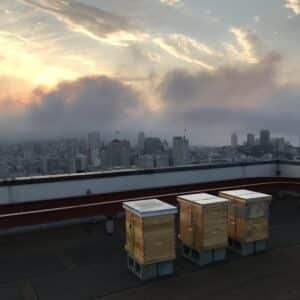
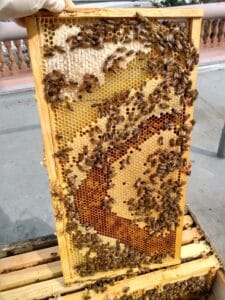
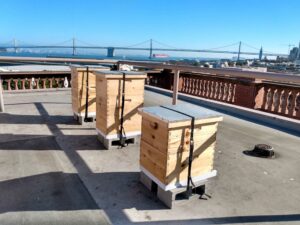
Frequently Asked Questions
We install and maintain honeybee hives on your property. Our expert beekeepers monitor the health of your bees and perform a variety of tasks throughout the year to help them thrive. At each visit, we also capture a range of metrics and share the data with renowned research partners to help the scientific community better understand the plight of pollinators. Towards the end of the season, we extract the honey and jar it for you.
About once per month for our Bay Area hives. If your bees are distressed and need extra support, supplemental visits are included. We coordinate each visit in advance and send a summary report afterward.
Only a few square feet! A beehive takes up as little as 2’ x 2’ x 3’. Our beekeepers need a few feet around the hive to access it, and the bees’ flight path will need to be unrestricted.
In the Bay area, we typically install hives when all threat of winter has passed, which is typically in April and May. Installations after June are accommodated on a case-by-case basis, depending on our inventory levels.
We fully guarantee the health of our bees and queens. If a colony dies, we’ll replace it with a healthy one from our own stock at no additional cost. While we hope each of our hives will thrive for years to come, the reality is that pollinators are still dying at an unprecedented rate. In places like San Francisco, where winters are mild, we can lose 50% of our hives annually.
Our Boston-based headquarters is staffed full time and available Monday through Friday during work hours by phone or email to answer any questions. When a colony requires extra attention, additional visits are made at no cost to you.
Yes, we provide a range of event support packages for our commercial clients. See Hive Programs for Commercial Customers for details.
Green roofs earn credits toward a building’s LEED (Leadership in Energy and Environmental Design) certification. Green roofs provide vegetation for water control, wildlife habitat, and better urban air quality. Honeybees can help maintain the green roofs that are becoming more common in big cities and thus contribute to a building’s LEED rating.
We service hives in Marin, Contra Costa, Alameda, Santa Clara, San Francisco, Sonoma*, Napa*, and Solano* counties.
*Service area limited. Please call to confirm coverage of your specific county.
We handle visit scheduling for you. We’ll contact you at least 72 hours in advance via email.

